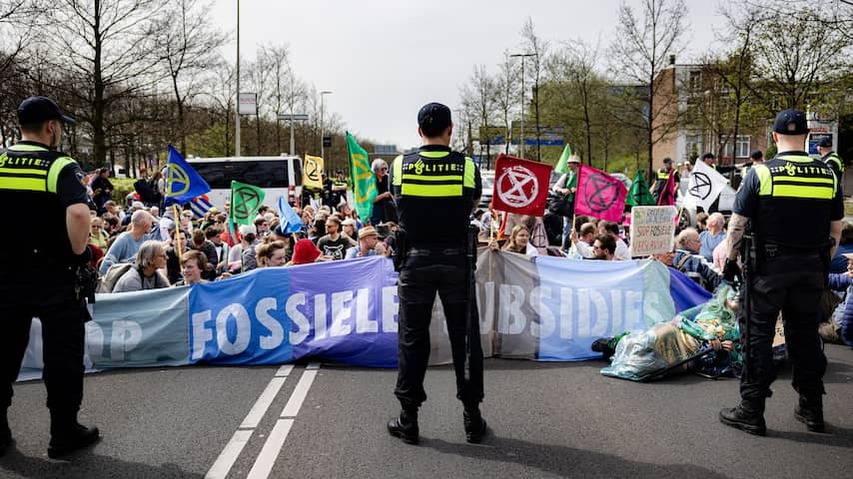
A bill that would make it easier to ban criminal motorcycle gangs is facing criticism. Opponents fear the law could be used against other organizations and activists. Experts also have concerns.
If Extinction Rebellion blocks the A12 highway for the climate, that is a criminal offense. Just like when farmers dump manure on the highway in protest.
But can action groups be banned for that reason? And who gets to decide that? The Senate is currently racking its brains over this.
It concerns a bill that gives ministers the power to ban criminal organizations without the intervention of a judge. The law is mainly intended for criminal motorcycle clubs. It was submitted in 2018 by a group of members of parliament from PvdA, VVD, CDA, SGP and ChristenUnie.
The proposal, which the House of Representatives already adopted in 2020, is now under pressure. GroenLinks-PvdA and the ChristenUnie have turned against their own plan because they no longer support it. Other parties also have doubts. It is far from certain that the proposal will receive support from enough parties.
Doubts About Utility, Fear of Abuse
Members of the Senate from D66, CU and BBB wondered this week during a debate whether the law is still necessary. In recent years, seven criminal motorcycle gangs have already been banned by the court, such as Hells Angels, Hardliners and Satudarah. Several senators wondered whether we should want politics to be involved.
With the law, the Minister of Justice will soon be able to determine which organizations pose a danger to society. The fact that this is not followed by a judge’s judgment makes it a lot easier to ban a certain club. During the debate, a comparison was also made with signing a decree.
“There is a chance – however small – that it could be misused,” says BBB senator Robert van Gasteren. His party is the largest in the Senate, but has not yet taken a clear position.
According to the initiators, the law is necessary because some clubs that are banned set up a new club. They believe that the law can be a supplement to the current system and say that it can be used to take action against criminal organizations more quickly.
Highway Blockade ‘Disruptive’ for the country or not?
The concerns of the opponents are understandable, says Joep Koornstra, university lecturer in constitutional and administrative law. He obtained his doctorate on freedom of association at the University of Groningen. The political color of the person at the helm in the Netherlands can suddenly become decisive for the fate of organizations, he outlines.
Goede Doelen Nederland also warns about this. The industry association of social organizations fears that a minister will soon be able to ban a non-criminal group – from a farmers’ protest organization to a climate club.
The proposal states that organizations can be banned if they commit “systematic criminal offenses”, “violate fundamental principles of law” and “disrupt” society. These are broad concepts that can be interpreted in several ways, experts say. While the Constitution states that an association can only be restricted if those conditions are formulated very clearly.
Take a highway blockade: “For one, it is ‘disruptive’, for the other it is not,” says Koornstra. Due to the vague wording, the bill, as it now looks, is “in violation of the Constitution,” according to him.
Council of State Already ruled negatively in 2019
Other countries with comparable laws, such as France and Germany, have included stricter standards in their legislation, Koornstra says. This is also possible here, for example by including “systematic commission of crimes” in the law.
But the question remains whether it is even necessary to give the minister this power, instead of the judge, the Council of State already said in 2019. “Such a change should only be implemented if there are compelling reasons to do so.” But those seem to be missing, the Council of State ruled.
The Senate will vote on the bill on Tuesday.